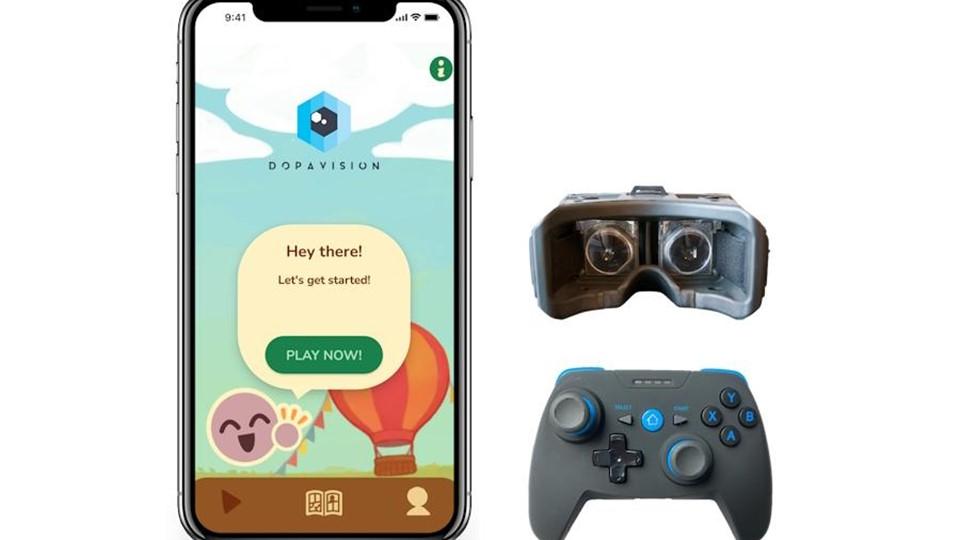Trial of VR therapy for myopia in kids starts in UK

A therapy for myopia or short-sightedness in children based on virtual reality and a smartphone app is to be tested at UK trial sites.
German digital health company Dopavision has teamed up with clinical trials start-up Lindus Health on the 12-month study, which will involve more than 20 youngsters aged between six and 12 with a refractive error between –0.75 and –5.00 diopters, ranging from mild to severe short-sightedness.
Myopia is an escalating public health problem and becoming more common in many countries around the world. A study based on people within the UK Biobank found an almost 50% increase in the number of people diagnosed with short-sightedness born between 1965 and 1970 (29%) compared with those born between 1939 and 1944 (20%).
Young people, in particular, are becoming near-sighted at an alarming rate – a phenomenon attributed by some researchers to greater use of mobile devices at an earlier age. Some studies have suggested that 50% of the global population will have myopia by 2050, with a raised risk of glaucoma, cataract, retinal detachment and other eye problems.
In what might be described as a case of ‘fighting fire with fire’, the new study is testing the effects of MyopiaX, a smartphone app that stimulates dopamine release in the retina of children while they play games using a VR headset.
The game elements entertain them, while the blue light therapy stimulates specific photosensitive cells in the retina. Studies suggest that if dopamine is reduced, the eye can become elongated, resulting in myopia.
MyopiaX is the first of Dopavision’s digital therapeutics to start clinical testing, and chief executive Mark Wuttke said it was an “important milestone” for the company as it will provide “the first clinical insights into our unique therapeutic approach to manage myopia.”
To deliver those insights, it has turned to Lindus Health, a company striving to shake up the way clinical trials are run by using software to speed up the process from design to patient recruitment and delivery and cut costs for trial sponsors.
Lindus will be responsible for executing the MyopiaX-1 trial in the UK, including site selection, participant recruitment, endpoint data collection, and regulatory submissions.
Other investigation sites are recruiting subjects across Germany, Spain, and the Netherlands, with a total recruitment target of around 80 subjects, and the first results from the study are expected to be available in early 2024.
Dopavision is funding the trial with the help of a €12 million Series A round in mid-2021 that was led by Seventure Partners and backed by investors including Novartis, Boehringer Ingelheim and Abbax Health, and a €1.2 million seed round in 2019 led by Boehringer.











